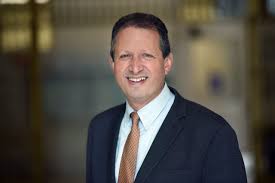December 13, 2013
By Steven Wishnia
By a margin of 620 to 10, graduate-student employees at New York University voted to rejoin the United Auto Workers Dec. 10-11.
The vote brings 1,247 graduate, teaching, and some research assistants at both NYU and the Polytechnic Institute of NYU into the union. It makes NYU the only private university in the U.S. where graduate employees have collective-bargaining rights, the UAW said in a statement. It caps a 15-year struggle to gain union representation—and an eight-year struggle to regain it.
“It’s a tremendous victory, because there’s such a long history,” says Julie Kushner, director of UAW Region 9A. She credits “the tenacity of these workers” for convincing the university to sign a neutrality agreement.
In 1998, a majority of NYU graduate employees signed cards choosing theGraduate Student Organizing Committee/UAW to represent them. Two years later, the National Labor Relations Board affirmed their right to collective bargaining and certified the GSOC/UAW’s election victory. They won their first contract in 2001, gaining a 38 percent raise in stipends plus health coverage, says Kushner.
But in 2004, the National Labor Relations Board, with a majority chosen by George W. Bush, ruled that graduate students did not have the right to collective bargaining. That meant that when the contract came up for renewal in 2005, NYU could legally refuse to recognize the union—and it did. A strike failed to change that.
GSOC/UAW filed another petition for recognition with the NLRB in 2010, after gaining another majority in card check. The university resisted, but the NLRB’s New York director said the graduate employees would qualify if the board reversed the 2004 policy.
On Nov. 26, the university signed a neutrality agreement with GSOC/UAW and Scientists and Engineers Together/UAW, authorizing the election and committing the NYU administration to bargain in good faith for a contract. The union agreed to drop its NLRB petitions, as the agreement rendered the board’s notoriously glacial process redundant.
Kushner says that the NYU community’s solid support for the graduate employees encouraged administrators to try to “turn around the relationship” with the union. “It’s pretty remarkable,” she says. “I think the administration gets a lot of credit for taking this approach. Other universities haven’t done that.”
The deal doesn’t include research assistants in sciences such as biology and chemistry, because their work is considered more part of their studies than as employment. However, Kushner says, many will be able to join the union because they also work as teaching assistants.



